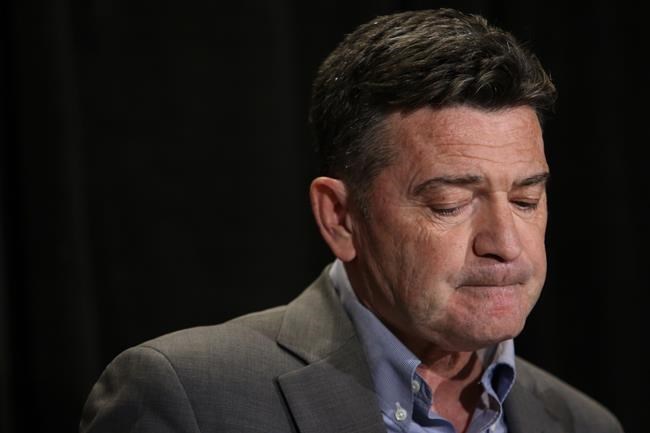A 17-year-old who killed himself after a life dominated by debilitating mental illness didn’t receive the support he needed to overcome it, despite regular interventions, a new report says.
Representative of Children and Youth Bernard Richard found the teen’s story reinforces the “desperate need” for a better mental-health system for children and youth.
“The representative cannot say conclusively that better services would have prevented this tragedy,” the report, titled Missing Pieces: Joshua’s Story, says. “Joshua” is a pseudonym.
“What this investigation does conclude, however, is that a truly clear and comprehensive youth mental-health system would have given Joshua and his family a better chance to deal with his challenging illness.”
Bernard described Joshua as an “intelligent, caring” and “sharp-witted” boy. He began showing signs of severe mental illness as early as age two, when he hit himself and banged his head against the wall.
Joshua was raised in the Cariboo, then the Lower Mainland, by a single mother who repeatedly reached out to provincial and school officials for help over the course of his life.
At eight, he told school staff: “I want to die … nobody cares, nothing can be done.”
Joshua first attempted suicide at 11, refused to go to school at 13 and began self-harming at 16.
In 2015, Joshua was airlifted out of the woods after his third suicide attempt. He was admitted to B.C. Children’s Hospital, where he remained for four months, as professionals tried to figure out a safe way to transition him back to the community.
On July 31, 2015, Joshua sneaked out of the hospital and climbed a fence to a construction site, where he took his life.
Richard found that Joshua’s family and teachers and child-welfare and health-care professionals intervened to help him — but he suffered because of gaps in that care.
“That was, in a way, part of the problem,” Richard said Wednesday.
“There were a number of workers and professionals from a number of organizations. But no single comprehensive system was in place to ensure Joshua was getting what he needed, when he needed it.”
In several instances, services offered to Joshua were withdrawn as soon as he showed improvement. His mother was sometimes asked to call back if a problem persisted, instead of receiving immediate support. His file was repeatedly closed.
After two of his suicide attempts, Joshua was admitted to an adult psychiatric ward, “a totally inappropriate place for a youth,” Richard said.
There were inadequate “step-up” services that would prevent Joshua from ending up in hospital and “step-down” services that would safely bridge his transition back into the community, Richard said.
“These gaps need to be filled so that other children and families do not find themselves in similar circumstances going forward,” he said.
“I know from my own work with the Canadian Pediatric Society that this is a growing issue. More and more kids suffer from mental illness earlier.”
Richard called for a comprehensive plan to be developed within 12 months and for implementation to begin within 24 months.
He would not speculate on the cost of such a plan.
Judy Darcy, B.C.’s minister of mental health and addiction, said the government is working on a mental-health and addiction strategy, including a focus on youth mental health.
She called Joshua’s story “devastating” and extended sympathies to his family.
“We fully accept the recommendations in this report,” Darcy said.
“This is precisely the work the new ministry has embarked on.”
But while she emphasized that a strategy will be created, she didn’t commit when asked if it could be implemented within 24 months.
Darcy also said a budget won’t be known until the strategy is developed.
“We don’t have the answer to that yet,” she said.
“There’s nothing more pressing than us ensuring our young people get the support in life they need, in order to support them and take them through some of these challenges and provide greater opportunity for health and wellness, including mental wellness.
“We will be giving it everything we have.”



